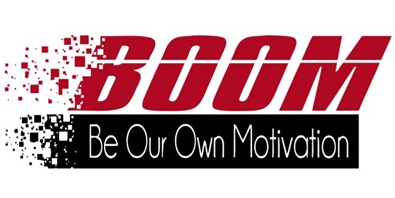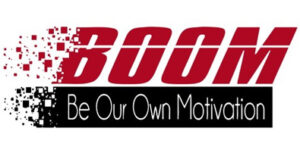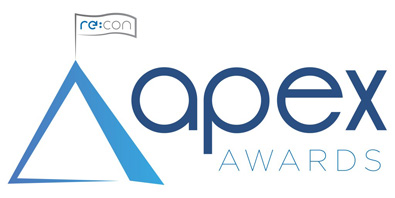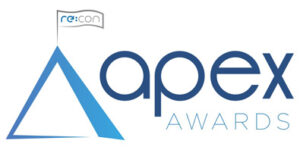RE:CON 2023
PRESENTATION FILES
Session and Presentation Files
A Hands-On Approach to Assistive Technology |
PRESENTED BY: Kellie Blackwell
| The Michigan Assistive Technology Program (MATP) is a free federally funded program under the Assistive Technology Act. Join Kellie Blackwell, MA, CRC and other MATP AT Specialists to learn more about the services provided by MATP, while having an opportunity to get a hands-on experience with a variety of inventory within the lending library. This session will provide a way for participants to ask questions while checking out any of the devices on display. From AT for the workplace to AT for Outdoor Recreation to AT for Gaming and many areas in between, participants are encouraged to get the devices in their hands and see how it all works! |
Artificial Intelligence – Legal & Policy Implications for Individuals with Disabilities |
PRESENTED BY: Amy Maes
| This session will provide participants an opportunity to learn the definition of AI; identify current and future legal issues presented by AI; an overview of the laws that currently apply to AI; current EEOC and DOJ guidance; update on White House’s AI Bill of Rights; and a summary of the case law addressing AI and ML issues related to dealing with discriminatory practices. |
Artificial Intelligence’s Role in Modernizing Human Services
PRESENTED BY: James Willis
| Join me in a journey that will provide a brief overview on how AI works, some practical applications of AI you can use right now, and some thoughts on how it will change the delivery of human services in the future. |
Business is Our Customer Too!
PRESENTED BY: Craig Saunders, and Lisa Stanley
Since the implementation of the Workforce Innovation and Opportunity Act (WIOA), some Vocational Rehabilitation (VR) agencies have struggled to serve business customers or recognize the subject matter expertise VR has to offer. We will answer the following questions; How can we build long term relationships with business? What services can be offered? What value these services have to both business and to our shared job seeking customers.
Charting The Seas of Resource Navigation: A Glimpse into Collaborative Practices & Barrier Resolution |
PRESENTED BY: Chris Smith, Deb Balk
| Have you ever worked with someone who was motivated to achieve a goal, but found it difficult to overcome barriers? Have you had someone ask you for help finding resources in their time of need? If you have every provided resources or knowledge to help empower someone, then you may be a Resource Navigator. This presentation aims to dive into the art and power of resource navigation, provide tools and strategies, as well as share experiences and successes. Members of the Goodwill of Greater Grand Rapids Resource Navigation Team will present and provide insight into the process of navigating the at times rough seas of finding resources of individuals in need. With collaboration amongst community partners, the path towards guiding people to the resources they need can make the journey much easier. Come join us to see how resource navigation is vital to the success of the people we serve and how you may be a Resource Navigator yourself! |
Create a Culture of Experiential Support |
PRESENTED BY: Kat Thompson and Cameron Cranna
| Attending this presentation participants can expect to discuss and learn the impact of creating a culture of coaching on an organization. Various coaching methods and strategies will be shared from the perspective of Supervisor Coaching, and we will discuss how these can be adopted by other organizations. Participants will leave with a structured coaching plan that promotes psychological safety, fosters a growth mindset, and inspires a shared vision for individual and organizational resilience and development. |
Diversity, Equity and Inclusion for People We Serve |
PRESENTED BY: Susan Salhaney, George Winn
| Disability inclusion ensures all individuals regardless of their abilities are able to participate in social, vocational and health promotion activities. While strides have been made in diversity, equity and inclusion for many populations, individuals with a disability are a population that have often not been represented in these efforts nor their voice included. Through understanding DEI principles, barriers to inclusion in community, vocational and health access and strategies to support and include individuals with disabilities in inclusion actions. |
Diving Into Intersectionality to Ensure Best Practices and Fostering an Inclusive Work Environment
PRESENTED BY: Carie Branch and Rene Dell
We are going to take a deep dive to explore intersectionality in the workplace. This session will include a hands on approach to really digging into the topic of DEI in the work place. This will include a period of guided self-reflection, action steps to walk away from the presentation with, a review of policy changes that can help to foster a more inclusive environment and will end with resources and next steps.
Fostering an Ethical Workplace Culture
PRESENTED BY: Menachem Hojda, LMSW
People who work in the non-profit service sector are increasingly seeking workplaces that reflect their values and honor their ethics. This workshop will examine how leaders can review their policies, procedures, and leadership styles to attract and maintain employees that uphold the values of the organization and foster ethical behavior in the workplace.
Gesher Human Services’ Creative Expressions Program
PRESENTED BY: Craig Nowak
Gesher Human Services’ Creative Expressions Program partners with community organizations like the College for Creative Studies, Detroit Symphony Orchestra, Detroit Opera, Matrix Theatre, and more, to develop arts education, enrichment, and opportunities for people with mental health challenges and intellectual & developmental disabilities. We focus on all creative disciplines, from visual arts, music, and literary arts to performing arts and dance. Our participants hone their skills with a variety of classes led by our creative partners whereafter, we help them find opportunities so they can develop themselves artistically and fulfill their own professional creative goals. Creative Expressions artists have exhibited their art at the Museum of Contemporary Art Detroit, Gallerie Camille, and Detroit Contemporary to name few. They’ve performed music on top of the Detroit Opera House, in the Detroit Symphony Orchestra’s Max M and Marjorie S Fisher Music Center, and several other places throughout the community. Our participants have danced with professional choreographers during theatrical plays. They’ve walked in runway shows. And several have had their writing published. The presentation will delve into these sorts of participant accolades, their connections to our Creative Expressions Program, how we’ve managed to develop relationships with so many magnificent creative community partners, and how other organizations can mirror the success of our program within their own respective communities.
Service Animals 101
PRESENTED BY: Christa Martin, MRC, CRC
| Navigating the difference between service animals, emotional support animals, and the laws and regulations that impact individuals with disabilities use of them at work, at home, in public, etc. is not always easy for rehabilitation professionals or for their clients. This is a highly interactive session that engages participants and tests their current knowledge of this subject, particularly how it relates to the ADA and employment, as well as the CRCC Code of Ethics. Canine Companions for Independence and Assistance Dogs International will be highlighted as well! (Specific CRCC Code of Ethics addressed include sections: A.2., C.1., D.1., D.2., D.3., and M.1.) |
The Art of Supervision: Reflecting on Supervisee Qualities in Clinical Supervision |
PRESENTED BY: Asmau Ayub, Narae Yu
| Supervision is an essential component of the counseling profession. Served beyond the gatekeeper role, most supervisors are motivated to provide their supervisees with the best possible support. This intent makes it essential to assess the qualities and competence that supervisees convey into the supervisory relationship. An important aspect of the art of supervision relates to how the supervisor’s personality interacts with their professional predisposition, and how this evidently plays out with their supervisee’s competence. In this presentation, we will discuss some strategies and tips for supervisees to effectively communicate with their supervisors. Suggestions are made that address the difficulties that arise while matching supervisors with their supervisees. We provide recommendations on incorporating the necessary and relevant strategies to achieve seamless assimilation. Our goal is to bridge the gap between the complexities of personality and professional predispositions and highlight some effective modalities and strategies when matching supervisees with supervisors. We believe that this will improve the effectiveness of the supervisory relationship, provide a more useful platform for full engagement, learning, and transformation in the context of clinical practice, and ultimately, lead to better client outcomes. |
The Importance of Job Coach Training |
PRESENTED BY: Maria Peak and Matt McDonald
| In today’s ever-evolving job market, the role of a skilled job coach has become increasingly indispensable. As individuals navigate employment opportunities, a job coach serves as a guiding light, offering invaluable support and expertise to help individuals achieve their career goals and maximize their potential. This presentation explores the critical importance of skilled job coaches and their impact on the lives of the people we serve. We will delve into the role of a job coach and important skills they need to exhibit. |
The Intersection of Employment and Sexuality: Building Healthy Relationships at Work Using the Elevatus Training Curriculum for People with Developmental Disabilities |
PRESENTED BY: Mary Shehan
| We all want to live full, happy and satisfying lives with the ability to learn, live interdependently, work. We all want to have healthy relationships with our friends, significant others and colleagues in the work environment. This is true for young adults with Intellectual and Developmental Disabilities (IDD), as well. Many people with IDD receive messages that they aren’t sexual beings and receive fewer opportunities to learn factual information on this important topic. Staff from the Michigan Developmental Disabilities Council and Peer Educators with disabilities will present information about the Building Healthy Relationships at Work curriculum from Elevatus Training and discuss how this training is available throughout Michigan. |
The Value of Telling Your Story |
PRESENTED BY: Sharon Emery
| Disability is never anyone’s total identity. We are much more than what society has categorized as our inability to do certain things. We can all agree on that.
And yet, disability in its myriad forms is undoubtedly part of who we are. (Each one of us has something, right? The so-called able-bodied may have trouble accepting that, but there’s help for them…) The challenge is in figuring out where disability fits into our identity, our life story. But the really exciting part is that we can write that story. Each of us can tell the world who we are, social constructs be damned. Human beings have the unique facility among the animal kingdom to use language. It is, in fact, the way we survive. We use language to process the large and small events of our lives and to give them meaning. As the Pulitzer Prize-winning author Joan Didion wrote, “We tell ourselves stories in order to live.” Indeed. But telling our stories, finding our identities, can be daunting. How to begin? Where to go? As a person with a disability, we have to figure out how we feel about ourselves. And that will in turn influence how we tell our story and what story we tell. We may struggle with negative feelings of inadequacy. But by using language, by telling our story and having it exist outside of our own heads, we can influence how that story evolves. We can share it with others, compartmentalize it, even put it away on a shelf for a while. We can figure out what it means and whether we want to change the story line. This process also works for medical professions, caregivers and care providers. They, too, have a story to tell. There are doctors and nurses who write about their own experiences in meeting patient needs, creating a for-their-eyes-only “parallel chart” to the official hospital chart. Employing narrative medicine, people in challenging jobs have found that they can write their way into a better understanding of their patients and clients. On one side there’s the data, on the other side, their human response to that data. The transcription of facts into feelings, if you will. The objective of this session is to provide tools for us to tell our stories. |
Thriving with Autism: The Power of a Wrap-Around Support System |
PRESENTED BY: Matt McDonald
| Autism is not a barrier to success; it is a unique perspective that, when harnessed with the right support, can lead to remarkable achievements. This presentation sheds light on my life and how I have not only embraced my autism but have also thrived, all thanks to the nurturing people of my wrap-around support system. |
Unconscious Bias: Overcoming Ethical Obstacles While Increasing Multi-Cultural Competencies |
PRESENTED BY: Christa Martin, MRC, CRC
| This session will assist rehabilitation professionals in overcoming ethical obstacles involving unconscious bias by increasing multi-cultural competencies and providing “best practices” in accordance with the CRCC Code of Ethics. Many clients with disabilities are impacted by unconscious bias in the workplace and within service settings such as ours.
We have an ethical obligation to reduce our unconscious bias, so as not to serve as an additional barrier to clients obtaining gainful employment or putting your professional relationship at risk. This interactive presentation will demonstrate how to overcome this obstacle including, but not limited to: differentiating conscious versus unconscious bias, various examples of unconscious bias, identifying ethical risks and implications for professionals, tangible methods to identify and address our own unconscious bias, etc. We will end with a facilitated discussion because hearing from other professionals within the field is the best way to find new ideas and resources for assisting our clients, both consumers and employers! (Specific CRCC Code of Ethics addressed include the founding values, six core principles of ethical behavior, and sections A.1., A.2., A.4, B.1., D.2., D.3., and M.1.) |
Unlocking Excellence in Direct Support Professionals
PRESENTED BY: Kimberly Pietrylka-Miller, Jason Kaszubski, Andrea Davis
Join us for an enlightening presentation that delves into the DSP Tiered Credentialing Program. As a dedicated provider in the field of human services, New Horizons is excited to showcase the unparalleled benefits and opportunities this program offers for both direct support professionals (DSPs) and organizations alike.
New Horizons partnered with National Alliance for Direct Support Professionals (NADSP) to provide a structured framework for DSP professional growth. We will discuss the DSP credentialing program design, the training platforms used, describe the various credentialing levels/tiers, share success stories and the challenges.
Youth Leading The Charge for Inclusive, Integrated Employment |
PRESENTED BY: Mary Shehan, Amanda Van Tubergen and YEAH Ambassador Hosts
| For many families, their youth’s transition to adulthood is an uncertain time. Where will they work? Where will they live? Will they have friends and be able to do things they enjoy? Families of youth with significant barriers to employment may not be able to envision in the community for their sons and daughters. Professionals may steer youth into the most available jobs rather than support them to explore a wide variety of career options. Youth Employment Ambassador Hosts (YEAH) will co-present with staff from Michigan Developmental Disabilities Council on ways to incorporate youth in the charge to promote inclusive, integrated, employment, by teaching their peers to become leaders of their own journey. |
